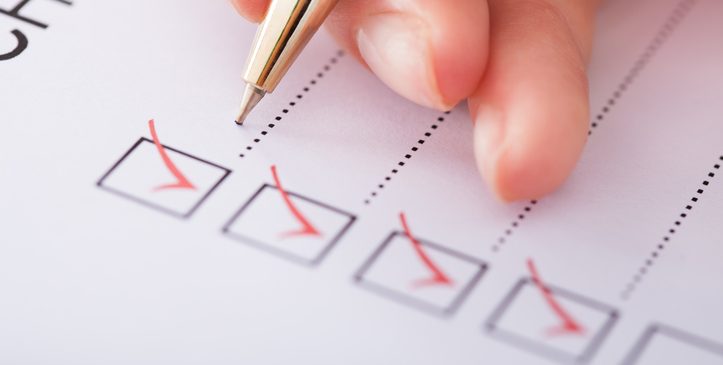 “I am an INTJ Type Six Achiever.”
“I am an INTJ Type Six Achiever.”
If the sentence above sounds more like gibberish than science, stay with me! By the end of this post, you’ll be able to interpret these symbols and construct a rough characterization of my personality, tendencies and values.
Pretty cool, right?
INTJ, Type Six and Achiever are markers referring to my specific results on three behavioral assessment tools – otherwise known as personality tests. These tests provide generalizations about the way individuals communicate, make decisions, process emotion and assign meaning in day-to-day life. Learning to unlock and apply these insights at the office can reap enormous benefits, from boosting productivity to cultivating higher job satisfaction.
Whether you’re a supervisor working to improve communication among your team or a seasoned employee looking for ways to stay motivated on the job, the following personality tests are an excellent first step in reshaping the way you think about yourself – and your career!
Myers-Briggs Type Indicator (MBTI)
Perhaps the most famous personality test, the Myers-Briggs exam categorizes individuals into one of 16 major groupings based on four key factors – directing and receiving energy, absorbing information, making decisions and approaching the outside world. With one of the most detailed reports on the market, the Myers-Briggs offers guidance in areas such as workplace habits, career paths and friendship, among others. If your employer is unable to cover the cost, there are similar tests available online for free that provide comparable results.
An Example of the Myers-Briggs in Action
Before joining your local chapter of Federally Employed Women (FEW), you need approval from your supervisor, Steve. Because Steve is an ISTJ, you know he is practical and fact-minded. When presenting the request, you are sure to provide all of the details – annual fees, time requirements, membership benefits, other employees in the program and costs from similar organizations. By appealing to Steve’s appreciation of data and figures, you are more likely to see the request approved.
Enneagram
Unlike the Myers-Briggs, the the Riso-Hudson Enneagram Type Indicator test by the Enneagram Institute describes individuals in terms of their greatest hopes and fears instead of their habits. The Enneagram also provides a useful scale for each personality that illustrates how different individuals may behave depending on the fulfillment (or lack thereof) of their greatest need. This can help you spot when a coworker is flourishing or when they could use extra support.
An Example of the Enneagram in Action
Jason, a Type One, joined the Department of Veterans Affairs as a way to fulfill his calling to community service. As Jason’s supervisor, you notice that he often seems frustrated and dissatisfied when tasked with administrative work. By helping Jason see how his daily assignments uphold the mission of supporting veterans, you can help him stay fulfilled on the job by linking his efforts to the greater cause.
StrengthsFinder
The purpose of StrengthsFinder is to discover your innate talents, not necessarily your behaviors, fears or aspirations. By identifying your instinctive strengths and weaknesses based on 34 qualifications, the StrengthsFinder test and accompanying book can teach you to recognize, refine and repurpose your unique skills into a fulfilling career. By capitalizing on existing talents, StrengthsFinder will help you identify a path that is a natural fit.
An Example of StrengthsFinder in Action
It’s been more than six months since her promotion to manager of customer service, and Sandra still isn’t happy in her new role. You encourage Sandra to take the StrengthsFinder exam, after which she realizes her natural abilities in harmony and other relationship-building themes. She now understands that her dissatisfaction with the job is not a reflection of her work ethic, but rather her strengths. Sandra would likely enjoy working in a different area in the company that involves less conflict but still includes a lot of human interaction.
Now, the big question: who are you?
With the potential to boost productivity, improve interoffice communication and even increase job satisfaction, personality tests are an excellent investment for companies, government organizations and individuals. If you’ve taken any of the tests above, share your results below! Do you feel your results are generally an accurate depiction of who you are? How have these insights transformed the way you work?
Laura Wilcox is part of the GovLoop Featured Contributor program, where we feature articles by government voices from all across the country (and world!). To see more Featured Contributor posts, click here.





The contrast for text on posts is often not high enough for me to read them. Please consider darker letters. They are too light for me to see. Thank-you